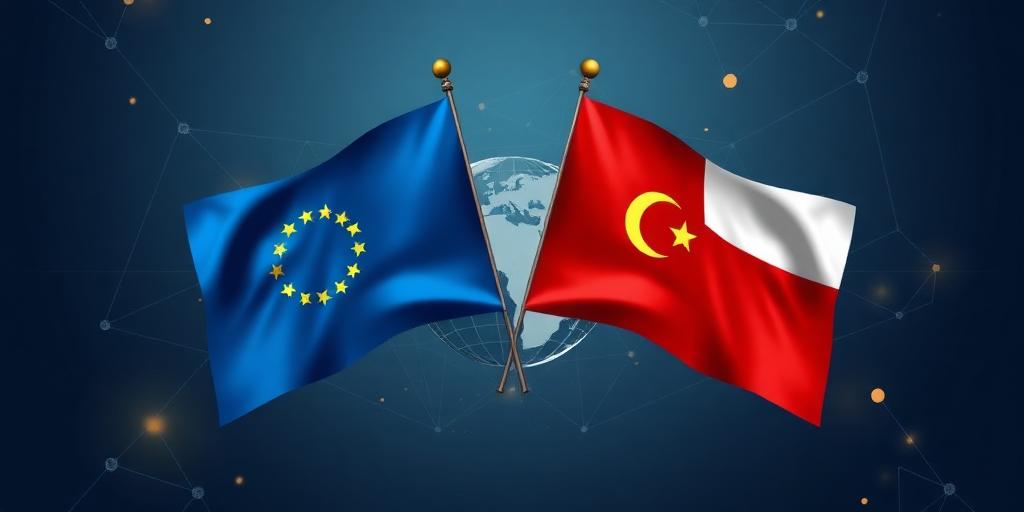The Role of Bilateral Diplomacy in Global Affairs
In an increasingly interconnected world, bilateral diplomacy plays a crucial role in shaping international relations. Bilateral diplomacy, at its core, involves direct interactions and negotiations between two sovereign states. This form of diplomacy addresses a wide array of issues, ranging from trade and security to cultural exchange and environmental concerns. Understanding its mechanisms and significance is essential for grasping the dynamics of global affairs.
Defining Bilateral Diplomacy
Bilateral diplomacy is characterized by its one-on-one approach, differentiating it from multilateral diplomacy, which involves three or more states. These direct interactions allow for focused discussions and tailored agreements that reflect the specific interests and priorities of the involved parties. This approach is particularly effective in resolving disputes, fostering cooperation, and solidifying alliances.
Key Functions of Bilateral Diplomacy
- Negotiation: Bilateral diplomacy serves as a primary channel for negotiating treaties, agreements, and accords. These negotiations can cover diverse topics, such as trade liberalization, border demarcation, and extradition treaties. Successful negotiations result in mutually beneficial outcomes, promoting stability and predictability in international relations.
- Conflict Resolution: When disputes arise between nations, bilateral diplomacy offers a means to de-escalate tensions and find peaceful resolutions. Through direct dialogue and mediation, countries can address grievances, clarify misunderstandings, and prevent conflicts from escalating into armed confrontations.
- Alliance Building: Nations often use bilateral diplomacy to forge alliances and strategic partnerships. These alliances are typically based on shared interests, such as security cooperation, economic integration, or geopolitical alignment. By strengthening bilateral ties, countries can enhance their collective capabilities and project influence on the global stage.
- Economic Cooperation: Bilateral diplomacy is instrumental in promoting economic cooperation between nations. Through bilateral trade agreements, investment treaties, and development assistance programs, countries can facilitate trade flows, attract foreign investment, and promote sustainable development. Such initiatives contribute to economic growth, job creation, and improved living standards.
- Cultural Exchange: Beyond political and economic considerations, bilateral diplomacy fosters cultural exchange and people-to-people connections. Cultural exchange programs, educational initiatives, and tourism promotion enhance mutual understanding, break down stereotypes, and promote goodwill between nations.
The Significance of Bilateral Diplomacy in Global Affairs
Bilateral diplomacy is not merely a tool for managing state-to-state relations; it is a fundamental building block of the international order. Its significance lies in several key aspects:
- Flexibility: Bilateral diplomacy offers flexibility and adaptability in addressing specific issues and tailoring solutions to the unique circumstances of each relationship.
- Efficiency: With fewer parties involved, bilateral negotiations can often proceed more quickly and efficiently than multilateral processes.
- Direct Communication: Bilateral channels facilitate direct communication and candid exchanges between leaders and diplomats, fostering trust and mutual understanding.
- Tailored Solutions: Bilateral agreements can be customized to reflect the specific needs and priorities of the involved parties, ensuring that outcomes are relevant and sustainable.
- Strengthening International Norms: By upholding diplomatic principles such as reciprocity, respect for sovereignty, and adherence to international law, bilateral diplomacy reinforces the norms and values that underpin the international system.
Challenges and Future Trends
Despite its merits, bilateral diplomacy faces several challenges in the modern era. Rising nationalism, geopolitical competition, and the proliferation of non-state actors pose obstacles to effective diplomacy and cooperation. Additionally, the increasing complexity of global issues, such as climate change, cybersecurity, and pandemics, requires multilateral solutions that transcend bilateral frameworks.
Looking ahead, bilateral diplomacy is likely to evolve in response to these challenges. The integration of digital technologies, the rise of track II diplomacy (involving non-governmental actors), and the growing importance of public diplomacy will shape the future of bilateral engagement. Moreover, greater emphasis will be placed on inclusive and participatory approaches that involve civil society, the private sector, and other stakeholders.
Conclusion
Bilateral diplomacy remains a cornerstone of international relations, providing a vital mechanism for managing state-to-state interactions, resolving disputes, and fostering cooperation. As the world becomes more complex and interconnected, the role of bilateral diplomacy will continue to evolve, adapting to new challenges and opportunities. By investing in diplomatic capacity, promoting dialogue, and upholding international norms, nations can harness the power of bilateral diplomacy to advance their interests and contribute to a more peaceful, prosperous, and sustainable world.









